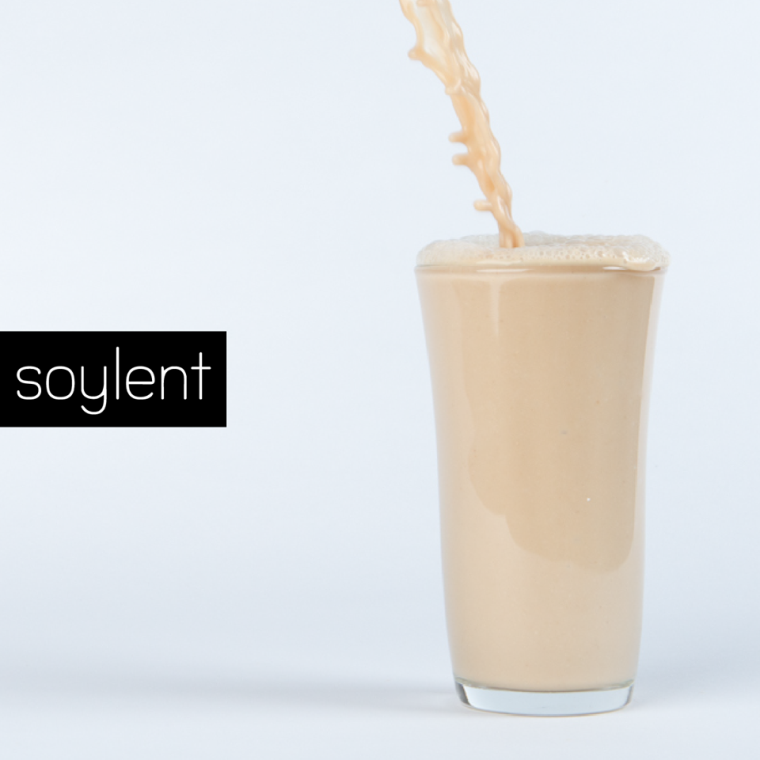You’ll never have to eat again: new drink provides essential nutrients
May 27, 2014
What if you never had to worry about choosing a healthy meal again? What if everything that your body needed came in a yellow-tinged liquid that you could always consume on the go?
There are certain days where that idea sounds too good to be true.
Soylent, a California-based product, claims to be able to accomplish just that: nourish your body with everything it needs, with no food substitution necessary. The food substitute was created by software engineer Robert Rhinehart, and its first shipment to the public went out last month, but it’s been in the works for more than a year. Made from maltodextrin, rice protein, canola oil, fish oil and raw chemical powders, Soylent provides the body with all its essential nutrients for less than $5 per meal.
The concept may seem crazy, if not remarkably appealing. I’ve heard of replacing meals with protein shakes or substituting fruit smoothies for after-dinner snacks. But the idea of an all-in-one solution to nutrition for efficiency’s sake is a new one — and it sounds like science fiction.
But the company isn’t shying away from that reputation. “Soylent” is taken from the Charlton Heston film “Soylent Green,” a dystopian movie that depicts a world where humans, because of overpopulation, must subsist on crackers known as Soylent Green. The famous twist is that the crackers are made from human flesh.
While Soylent isn’t made of human flesh, it taps into a popular notion held by our tech-savvy and efficiency-driven society: never waste time doing something that could be done in a quicker and easier way.
In a recent New Yorker article, Lizzie Widdicombe discusses how, when drinking Soylent, “you realize how much of your day revolves around food,” and as a result, we’ve become ghastly inefficient.
For me, a morning routine consists of a sit-down breakfast and subsequent clean-up. After reading Widdicombe’s article, I realized that my daily ritual usually takes me about an hour to complete. An hour of my day – the first hour of my day – is dedicated solely to food. And that’s only one meal.
With Soylent, five minutes and a blender can concoct three full meals with all the nutrients you need for a day.
With that in mind, imagine all of the extra time you would have to accomplish other things if you only drank Soylent. If you watch the beautifully rendered video on the company’s website, you could pick up an activity like kickboxing with all the time you spend preparing spare ribs or boiling potatoes.
But, as Widdicombe points out after her initial Soylent test, “with a bottle of Soylent on your desk, time stretches before you, featureless and a little sad.”
Unfortunately, I can’t blame my general inefficiency solely on food preparation. I also like to get lost in the Internet, and I often prioritize playing basketball before keeping up with my assigned readings for the week.
The idea of consuming only Soylent is intriguing because it would allow you to use every hour of the day in the exact way that you would want, and you’d never be constrained by the long hours that go into buying, rationing and preparing food.
I don’t think it is unrealistic to question if such efficiency could lead to further time-wasting. I still think I would end up checking the score of the baseball game and watching videos on YouTube more than I would like to admit if I had more time to do such things.
On the other hand, I think that a product like Soylent has its positives. Because there is a market for TV dinners and microwavable meals, there is no questioning that consumers crave quick and efficient eating. We also justify eating fast food because we just don’t have the time to make a good, wholesome meal during the work week.
So if we want quick meals, why not consume a beverage that not only is quick to prepare, but nourishes you completely? Widdicombe also claims in her article that Soylent keeps you both full and satisfied.
Although I am not deconstructing my kitchen cabinets to make room for a blender and pouches of Soylent, I find the idea of one-step nourishment fascinating and worth discussing. Even being able to grasp the idea of a healthy life void of consuming solid food is exciting.



